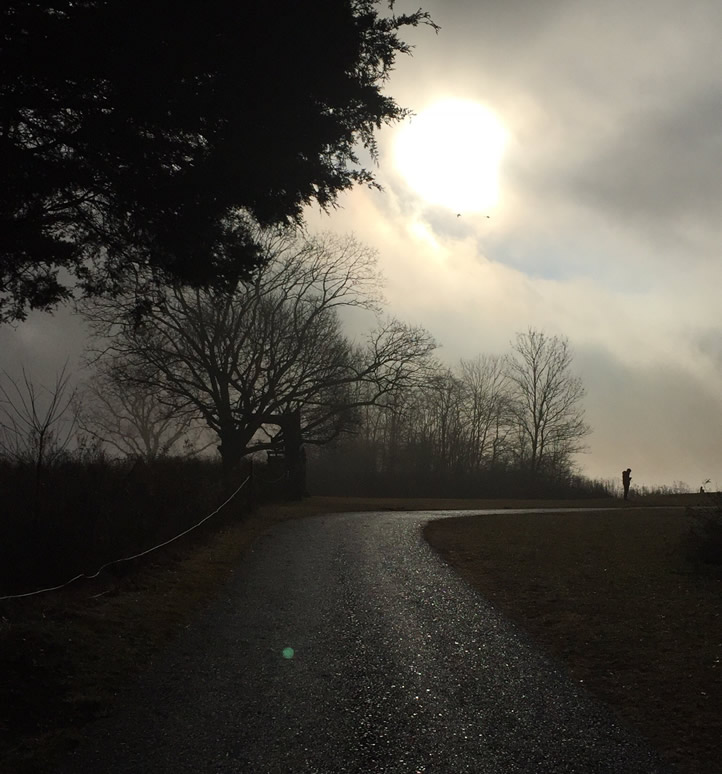
On August 5, my husband, Jim, drove me to the Frederickson Surgery Center to have a hole in the macula of my right eye repaired. Needless to say, if I could have found another way to fix the distorted vision in that eye, I would have chosen that. The success of this surgery required that I keep my head down, as if I were looking for ants on the floor, for 45 minutes of every hour for 5 days. That meant sleeping on my stomach with my head in a device similar to what you rest your head in when you have a massage, while resting my torso on a cushion that elevated my hips slightly and aligned my body so my head could rest in the elevated head rest.
For daytime use, we had rented a chair similar to those you see used for massage at the airport. The chair, with an attached tray, was quite clever, really, and it came with a separate mirrored device you placed on the tray so you could see the TV or someone sitting in front of you. I also listened to the book Rocketman, which I had downloaded to my phone.
Jim is a good cook, so I was fed well. He was also determined that I mind the 45 minute rule of head down, so meals were not leisurely, although never rushed.
You would think that the most difficult part of this experience would be the five long days of inactivity and disrupted sleep. However, my daughter keyed in on the biggest obstacle for me: having to allow others to take care of me. As I reflected on my daughter’s insight, I began to understand how the vulnerability that accepting help implies clashed with how I saw myself.
I have held a strong belief that I needed to be strong, in control, self-sufficient. Especially as I have aged this has become more important to me. In our culture aging does not have a positive connotation. To age is to raise the possibility and probability that if we live long enough, we will become more vulnerable and need more help to manage our lives. That is an image that I, and perhaps many others, want to deny might apply to us. “Having to be taken care of” raised that image for me. I have to admit that I placed a high value on my ability to be strong and self-sufficient, even as I noticed the changes in energy my age is already bringing.
In the Yoga Sutra, Patangali talks about five klesas or afflictions that are the source of all human suffering. Avidya is the affliction of misperceiving what is temporary and changing for what is real and enduring. Avidya underlies all the other klesas. For example: To be vulnerable, if only for five days, was a wake up call to face the reality of the vulnerability implied in aging. Not thinking that could happen to me is the avidya. Observing and reflecting on this allowed me to remember that there is a deep, unchanging spirit within me and everyone that is what is truly of value and real (vidya). The YOGA is to identify when avidya is taking hold and then return to knowing our true nature or spirit, which is unchanging and eternal.
Closely related to avidya is asmita, which is a confusion of who we are: we ‘identify our true value with things inside or outside of ourselves, all of which are subject to change.” For example: being at peace when you are healthy and strong and being totally depressed when you identify with weakness and vulnerability. My resistance (and a bit of suffering) was based on seeing myself as vulnerable and needing to be taken care of as I recovered from surgery. This identification of being less than, allowed for feelings of inadequacies, even while knowing intellectually that this body, its strength and ability to care for itself, is not eternal.
In the midst of discomfort, I was able to find some joy in gratitude. I accepted help. Jim made me meals, monitored my adherence to recovery rules, drove me wherever I needed or wanted to go, and generally looked after me. My dear friends came and read to me, talked to me, brought me goodies, made me tea, and just lightened my five days. While the idea of being cared for was an obstacle to agreeing to the surgery, I was very grateful and even relished the kind attention I received, the inquiries as to my recovery, the thoughtfulness, and the prayers. In the end, I accepted help and realized my recovery was an opportunity to be real and allow others to identify with their own generous and kind natures.
Thank you, Elizabeth. Your reflections on your recent experience of the need to recover from delicate eye surgery by keeping your head down for 5 days, added a dimension to the phrase in the metta meditation I use, “May I awaken to the light of my own true nature”, that I had not thought of before: that of our inherent vulnerability, and of the gift of that vulnerability which implies we are interdependent, no one of us can live without the support of others.
Elizabeth, as I read about your surgery and the journey that it took you on, It once again reminded me that “No man is an Island” and we do need one another. I am so happy to know that you are doing well. Stay strong.
Thanks, Alicia. I know your reply is coming from one of those people I think of as a
“strong” woman!